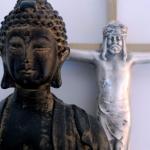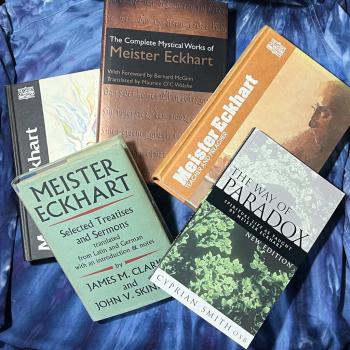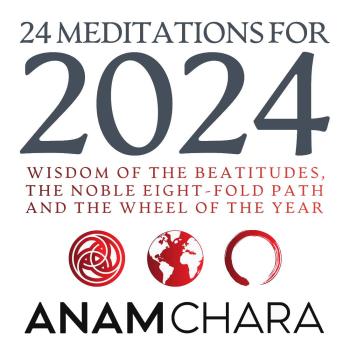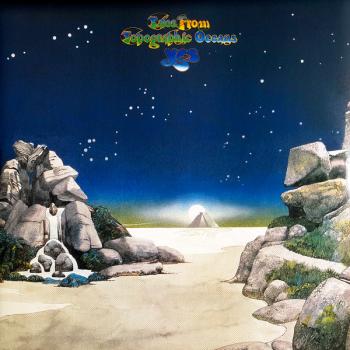
I’ve posted both of the following quotes in this blog before, but they are such wonderful quotes that I find myself going back to them again and again. Last night I taught a class on contemplative spirituality at an Episcopal Church in Gainesville, GA, and I used the first of these two quotes. It’s from the former Archbishop of Canterbury, Rowan Williams, on the occasion of his addressing the Catholic Synod of Bishops in Rome: the first time an Anglican Archbishop ever gave such an address. The Archbishop used this historic occasion to make the following comment about contemplation:
Contemplation is very far from being just one kind of thing that Christians do: it is the key to prayer, liturgy, art and ethics, the key to the essence of a renewed humanity that is capable of seeing the world and other subjects in the world with freedom – freedom from self-oriented, acquisitive habits and the distorted understanding that comes from them. To put it boldly, contemplation is the only ultimate answer to the unreal and insane world that our financial systems and our advertising culture and our chaotic and unexamined emotions encourage us to inhabit. To learn contemplative practice is to learn what we need so as to live truthfully and honestly and lovingly. It is a deeply revolutionary matter.
This next quote about contemplation, perhaps my all-time favorite single quote on the subject, comes from one of my true heroes: Anglican priest, community theologian, and spiritual writer Kenneth Leech, from his book The Social God (also excerpted in Prayer and Prophecy: The Essential Kenneth Leech):
Contemplation has a context: it does not occur in a vacuum. Today’s context is that of the multinational corporations, the arms race, the strong state, the economic crisis, urban decay, the growing racism, and human loneliness. It is within this highly deranged culture that contemplatives explore the waste of their own being. It is in the midst of chaos and crisis that they pursue the vision of God and experience the conflict which is at the core of the contemplative search. They become part of that conflict and begin to see into the heart of things. The contemplative shares in the passion of Christ which is both an identification with the pain of the world and also the despoiling of the principalities and powers of the fallen world-order.
What can we learn from these two Anglican theologians — one of whom inhabited the central corridors of the church’s power, the other of whom lived out his ministry in some of the grittiest neighborhoods in London’s economically challenged east end?
Here are just a few thoughts, a way to summarize these two splendid quotes from two of the most interesting (and authentically contemplative) theologians alive today. I’d love to hear if you have any more insights into what these two are saying.
- Contemplation is the key to Christian prayer, liturgy, art and ethics;
- It is also the key to a renewed humanity;
- And it is an answer (if not “the” answer) to the way in which our culture idolizes money, advertising, and entertainment;
- Contemplative practice teaches us how to live truthfully and honestly and lovingly.
- Therefore, it is a deeply revolutionary matter.
- Contemplation does not happen in a bubble or a vacuum; it is not an escape from the world’s problems, but rather a strategy for addressing those problems.
- Because we live in a toxic culture, we should expect that contemplation reveals to us the toxicity within our own hearts, minds, and spirits;
- Contemplation is not, therefore, a tool for achieving inner peace (even though at times it can be a deeply serene practice); rather, it will bring us face to face with all the ways in which we lack true peace and equipoise.
- Because contemplation is training in a new way of seeing, contemplative practice helps us to see the problems in our lives (and our world) more clearly.
- When we struggle with contemplative practice — facing our own inner chaos, turmoil, and darkness — we participate in the passion of Christ, which is a deeply revolutionary matter.
So both the Archbishop and the community theologian bring us to the same place in the end: a recognition that contemplative prayer and practice is ultimately such a profound force for both inner and outer change that it is truly revolutionary. But not revolutionary in a Marxist, Leninist or Maoist sense; rather, revolutionary in a Jesus of Nazareth sense.
Viva la revolución!
Following this article I have written a series of blog posts called “Why Contemplation is Revolutionary” that takes a closer look at what Williams and Leech are saying. I hope to release this series as an ebook in the near future. Please visit my web site to sign up for my email list, and I’ll let you know when the ebook is available.
Disclosure: if you follow the link of a book mentioned in this post and purchase it or other products from Amazon.com, I receive a small commission from Amazon. Thank you for doing so — it is the easiest way you can support this blog.
Enjoy reading this blog?
Click here to become a patron.


















